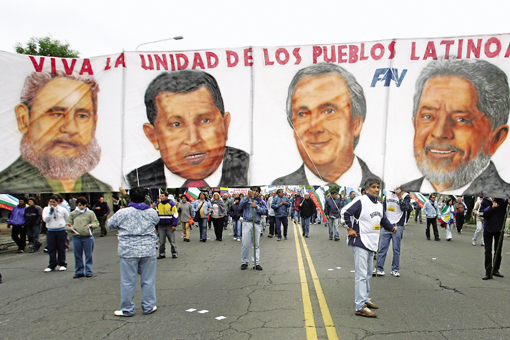During her visit to Washington on September 2, Panama’s Vice President Isabel Saint Malo indicated her intention to invite Cuba to the Summit—reaffirmed in her meeting with Cuban President Raúl Castro in Havana on September 18—but public U.S. statements have failed to commit President Obama’s attendance.
The periodic inter-American summits have become more important than ever for U.S. regional diplomacy, but our Latin American neighbors have said—firmly and unanimously—that unless Cuba is invited, their chairs will be empty. At a meeting in New York on September 22 cosponsored by Americas Society/Council of the Americas, Colombian President Juan Manuel Santos said bluntly, “if Cuba doesn’t go, then probably no Summit.” At the same time, the specter of photos of Presidents Barack Obama and Raúl Castro conversing around the same table, apparently as equals, will set off a political reaction among Cuban-American hardliners, Democrats and Republicans alike—a thought that gives the White House politicos heartburn.
Government bureaucracies are particularly ill-equipped to sort out such tough trade-offs regarding Cuba, and officials are reluctant to sacrifice one goal for the other—for each goal commands ardent defenders of roughly equal rank.
So it falls to senior leaders in the White House to make the decision. But when it comes to Cuba, leadership has so far been in short supply in this administration. Rather, it’s been the chair of the Senate Foreign Relations Committee—the unyielding senior senator from New Jersey, Robert Menendez—who has presided over policy toward his family’s native island.
To escape the impending train wreck, the U.S. can stick to its old policy, or it can use the opportunity to reframe both its Cuban and its hemispheric policies.





